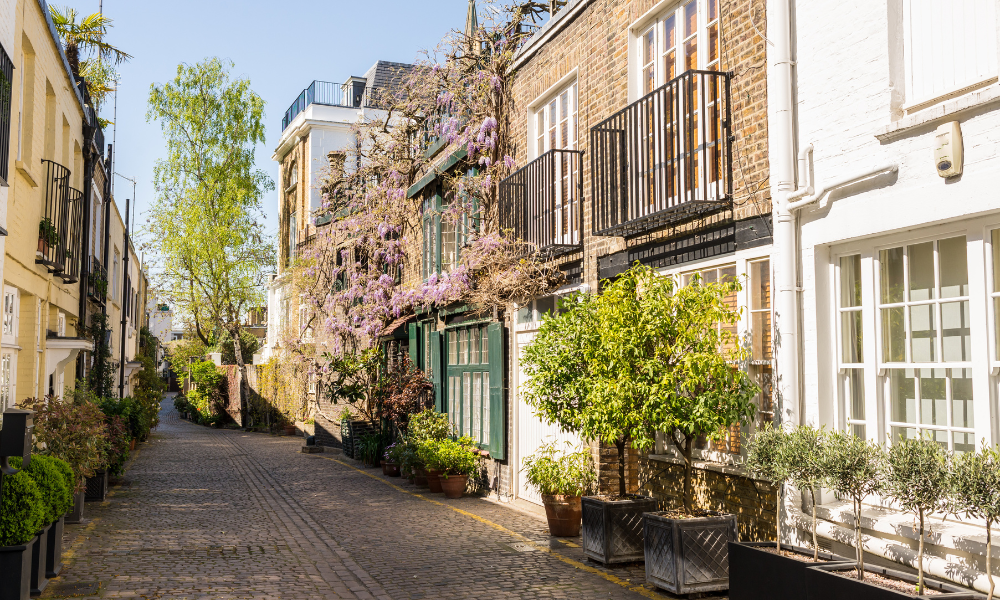Properties linger as tax exodus drains market

A glut of ultra-high-end homes has emerged across London’s most prestigious postcodes, as political reforms to long-standing tax advantages prompt a steady departure of wealthy non-domiciled individuals from the UK.
According to new figures from property data firm LonRes, the number of homes priced above £5 million listed for sale in May climbed to record levels, marking a 22 per cent rise on the same period last year. Yet, transactions are drying up. Sales volumes in this rarefied segment fell by nearly 15 per cent compared to May 2024, and by more than a third when measured against pre-pandemic averages.
Agents report a widening gap between vendor expectations and buyer willingness, as affluent overseas purchasers retreat in response to the abolition of the UK’s non-dom tax regime. The policy shift, implemented in April, removed a key incentive for wealthy foreigners to retain British residency by exposing their global estates to inheritance tax liabilities of up to 40 per cent.
“There’s no shortage of properties for sale at the top end,” Nick Gregori, head of research at LonRes told Bloomberg. “But sellers are increasingly having to revise prices to meet the realities of today’s buyer sentiment.”
The data reveals a surge in price adjustments, with the first five months of the year recording 45 per cent more reductions on homes valued at £5 million or above than in the same stretch last year.
Tax Migration Fuels Weakness at the Top
The chill in London’s prime property market coincides with growing evidence of an exodus among Britain’s wealthiest. A Bloomberg analysis of corporate filings suggests more than 4,400 company directors have formally relocated abroad over the past year — a marked acceleration that many attribute to the demise of the non-dom regime.
Several favoured destinations — including Switzerland, the United Arab Emirates and Italy — offer tax arrangements perceived as more favourable to high-net-worth individuals.
The government, now under Labour control, faces mounting pressure from industry insiders and financial leaders to soften the impact of its reforms. While no formal reversal has been announced, sources close to Chancellor Rachel Reeves suggest she is exploring mechanisms to ease the blow, particularly around inheritance tax liabilities for offshore trusts.
“There may be a recalibration, if not a full reversal,” said one senior City executive familiar with discussions in Whitehall. “Stopping the capital flight is becoming urgent.”
Discounts Emerge Beyond the Capital
The weakening appetite for prime London homes is echoed in broader national trends. Property portal Rightmove this week reported an average 0.9 per cent drop in asking prices for London homes in June — equivalent to nearly £7,000 per property. Nationally, asking prices fell 0.3 per cent, defying the typical seasonal rise in June.
The steepest price corrections were observed in the South East and South West, where a combination of tax hikes and a surge in second-home listings has dampened valuations. In coastal enclaves such as Devon and Cornwall, many owners are selling up in the face of increased taxation on secondary residences.
Colleen Babcock of Rightmove noted: “Sellers are now having to price strategically if they want to remain competitive. We’re seeing the effects of both elevated stock levels and a more cost-conscious buyer base.”
Despite the market’s softness, some signs of resilience remain. Economists point to real wage growth and the prospect of interest rate cuts from the Bank of England as potential supports for demand in the latter half of the year.
Still, the top end of the market remains under acute pressure, with estate agents warning that a continued policy misstep could see London’s standing as a global property magnet further eroded.
“London has always traded on its prestige and stability,” said Becky Fatemi of UK Sotheby’s International Realty. “Right now, both feel under threat. The question is whether policymakers will act in time to stem the flow.”



